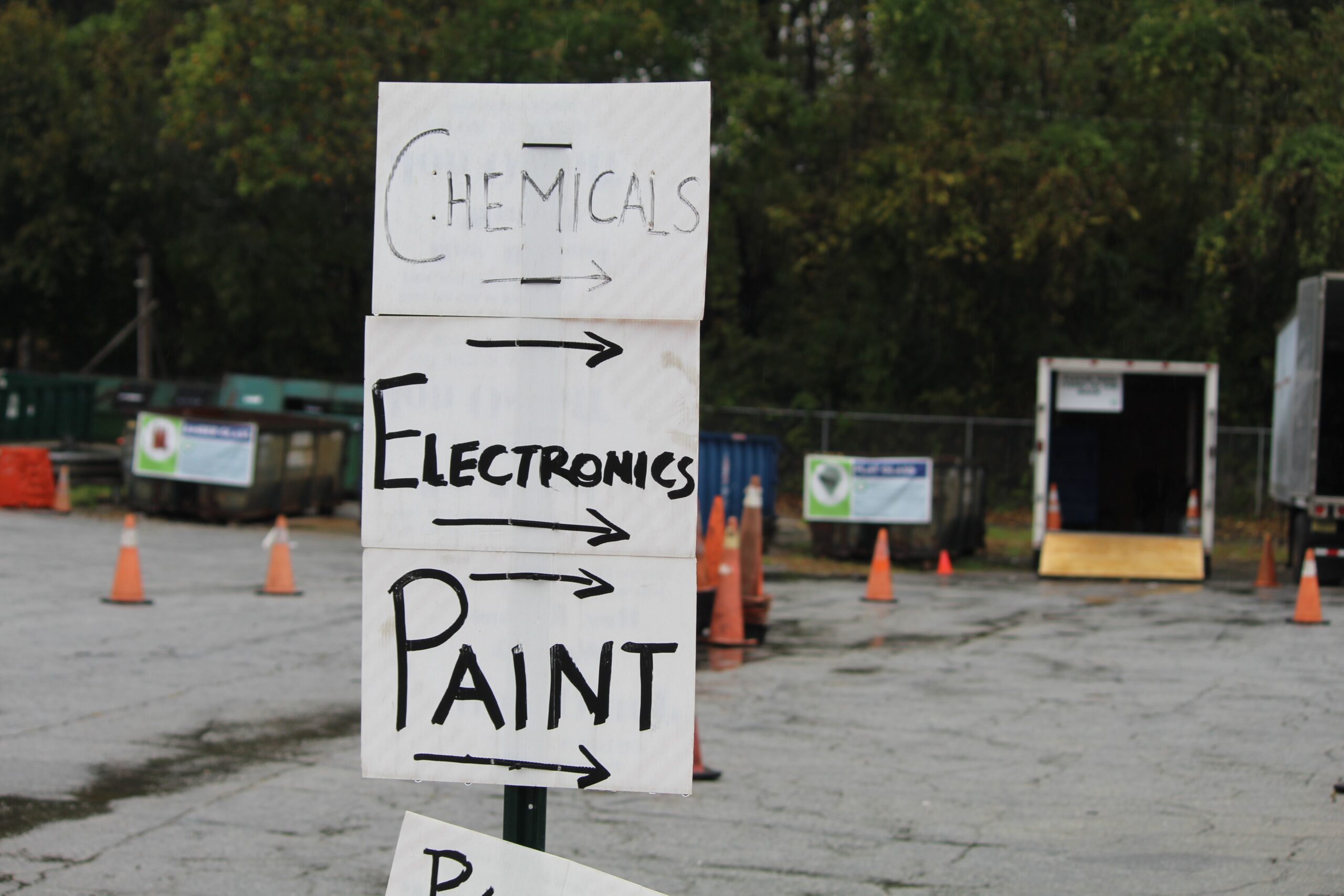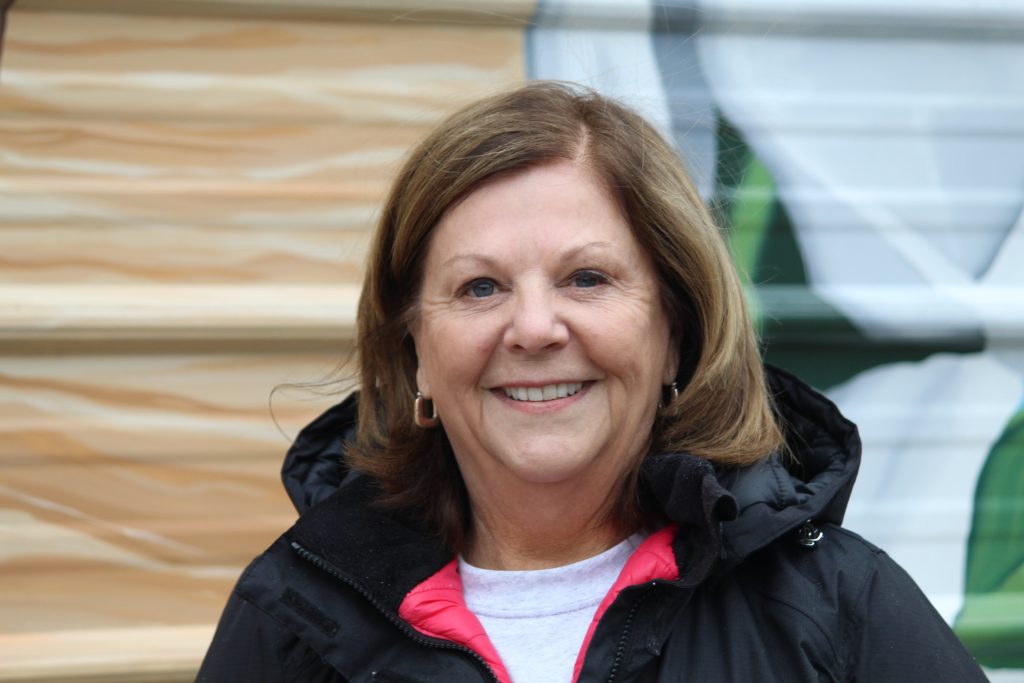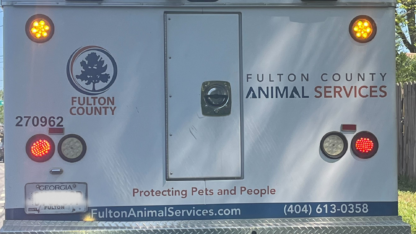National Recycling Day: sizing up Atlanta’s efforts to reduce waste

The Center for Hard to Recycle Materials in Atlanta says it handled 47,000 customers last year, up from 5,000 its first year in 2015.
Emil Moffatt/WABE News
Every day on the west side of Atlanta, tons of plastic arrive at the Nexus processing facility.
Most of it is thin plastic like shopping bags, packaging and “bubble wrap, huge amounts of bubble wrap,” said Nexus’ CEO Jeff Gold. “And where this comes from, I don’t really know or why we get it I’m not sure.”
When the plastic arrives, this feedstock, as they call it, is sorted by hand then ground up. It’s then heated in a chemical process called plastic pyrolysis, creating oil and wax that are sold to chemical companies that can re-use it.
“So this plastic is not being burned, it’s not being incinerated, it’s not making any kind of diesel fuel or gasoline or anything like that,” said Gold. “It’s being used to make brand new plastics.”
He says since Nexus started a few years ago, they’ve been able to divert nearly four million pounds of plastic from landfills. The company has plans to expand soon and it comes at a time when businesses in Atlanta and around the country are showing more commitment to sustainable practices.
“Since we’ve started up, we’re seeing more and more people coming to us and saying ‘Hey, I’ve got this material, I’ve been throwing it out, but can you take it now?’” said Gold.

He says most of the plastic they process is bought in bulk from businesses, but he hopes one day to handle more material from consumers too.
Monday is National Recycling Day and it comes just days after world leaders met in Scotland for the U.N. Climate Change Conference.
In recent years, businesses and households in metro Atlanta have shown a willingness to reduce their waste. But the recycling infrastructure in the U.S. is still playing catch-up with the rest of the world.
The Residential Role
On Atlanta’s southside, a steady line of cars streams into the Center for Hard to Recycle Materials — or CHaRM for short. It’s open to the public as well as businesses and universities. A fee is charged to recycle certain items.
Peggy Whitlow Radcliff has been running CHaRM for nearly seven years. She’s the executive director and founder of the nonprofit Live Thrive Inc.
“It’s amazing what has been done to take some of these materials that are so undesirable and they can be made into useful products,” said Radcliffe.
CHaRM can recycle some 40 types of material from electronics to tires to chemicals to paint and glass.

They turn it all over to processors — all of whom are listed on the facility’s website.
“One of the most important things I think about making recycling work is transparency,” said Radcliffe. “When you drop something off with me, where does it go and what do they do with it? Do you really recycle it, or does it get thrown away?”
That approach appears to be working. When CHaRM opened in 2015, Ratcliffe says they served 5,000 customers. This year, that number has grown to 47,000. The center is planning a second facility in DeKalb County.
Atlanta’s professional sports teams are playing a role in recycling too, with the Hawks, Atlanta United, Falcons and Braves all taking steps toward having zero-waste venues.
‘A Cost Issue’
Despite the progress that’s been made, the U.S. as a whole lags behind other countries when it comes to recycling infrastructure. Beril Toktay teaches business sustainability at Georgia Tech. She says cities like Atlanta can’t do it on their own.
“We need a federal level collection and recycling bill like exists in Europe,” said Toktay.
She says only then can you expect the kind of large-scale recycling that makes more business sense.
“It’s a cost issue at the end of the day,” said Toktay. “So if you’re able to drive the cost of recycling and landfill diversion down, then you’re going to see businesses engage even more deeply with that.”
New studies show that plastic waste is becoming one of the biggest contributors to climate change. Experts say finding ways to reduce the amount in our landfills will be critical.








